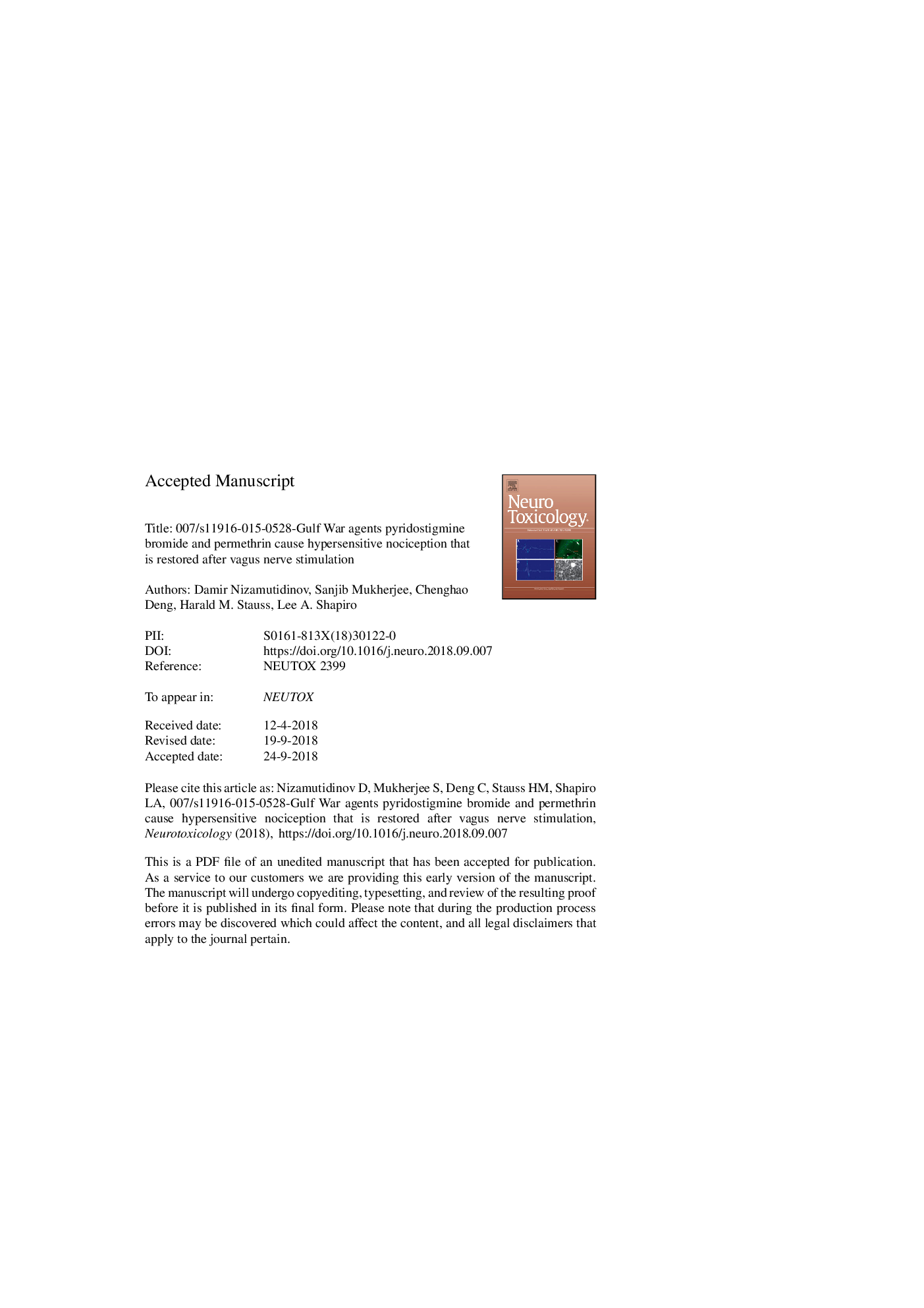| کد مقاله | کد نشریه | سال انتشار | مقاله انگلیسی | نسخه تمام متن |
|---|---|---|---|---|
| 11030733 | 1646165 | 2018 | 18 صفحه PDF | دانلود رایگان |
عنوان انگلیسی مقاله ISI
Gulf War agents pyridostigmine bromide and permethrin cause hypersensitive nociception that is restored after vagus nerve stimulation
ترجمه فارسی عنوان
عوامل جنگ خلیج فارس پرییدوستیگمین برومید و پرمترین باعث ایجاد حساسیت غیر حساسیتی می شوند که پس از تحریک عصب واگ
دانلود مقاله + سفارش ترجمه
دانلود مقاله ISI انگلیسی
رایگان برای ایرانیان
کلمات کلیدی
فون آزاد بیماری جنگ خلیج، آفت کش ها، استیل کولین استراز، درد، راه ضد التهابی کولینرژیک،
موضوعات مرتبط
علوم زیستی و بیوفناوری
علوم محیط زیست
بهداشت، سم شناسی و جهش زایی
چکیده انگلیسی
Gulf war illness (GWI) is a chronic multi-symptom disease that afflicts 25-33% of troops that were deployed in the 1990-1991 Gulf War. GWI symptoms include cognitive, behavioral and emotional deficits, as well as migraines and pain. It is possible that exposure to Gulf War agents and prophylactics contributed to the reported symptomology. Pyridostigmine bromide (PB) and permethrin (PER) were given to protect from nerve gas attacks and insect vector born disease, respectively. Previous studies have demonstrated that 10 days of exposure to these chemicals can cause symptoms analogous to those observed in GWI, including impairment of long-term memory in mice. Other studies using this model have shown chronic neuroinflammation, and chronic neuroinflammation can lead to altered nociceptive sensitivity. At 10-weeks after the 10-day PB and PER exposure paradigm, we observed lowered nociceptive threshold on the Von Frey test that was no longer evident at 28 weeks and 38 weeks post-exposure. We further determined that vagus nerve stimulation, initiated at 38 weeks after exposure, restores the lowered nociceptive sensitivity. Therefore, stimulating the vagus nerve appears to influence nociception. Future studies are need to elucidate possible mechanisms of this effect.
ناشر
Database: Elsevier - ScienceDirect (ساینس دایرکت)
Journal: NeuroToxicology - Volume 69, December 2018, Pages 93-96
Journal: NeuroToxicology - Volume 69, December 2018, Pages 93-96
نویسندگان
Damir Nizamutdinov, Sanjib Mukherjee, Chenghao Deng, Harald M. Stauss, Lee A. Shapiro,
